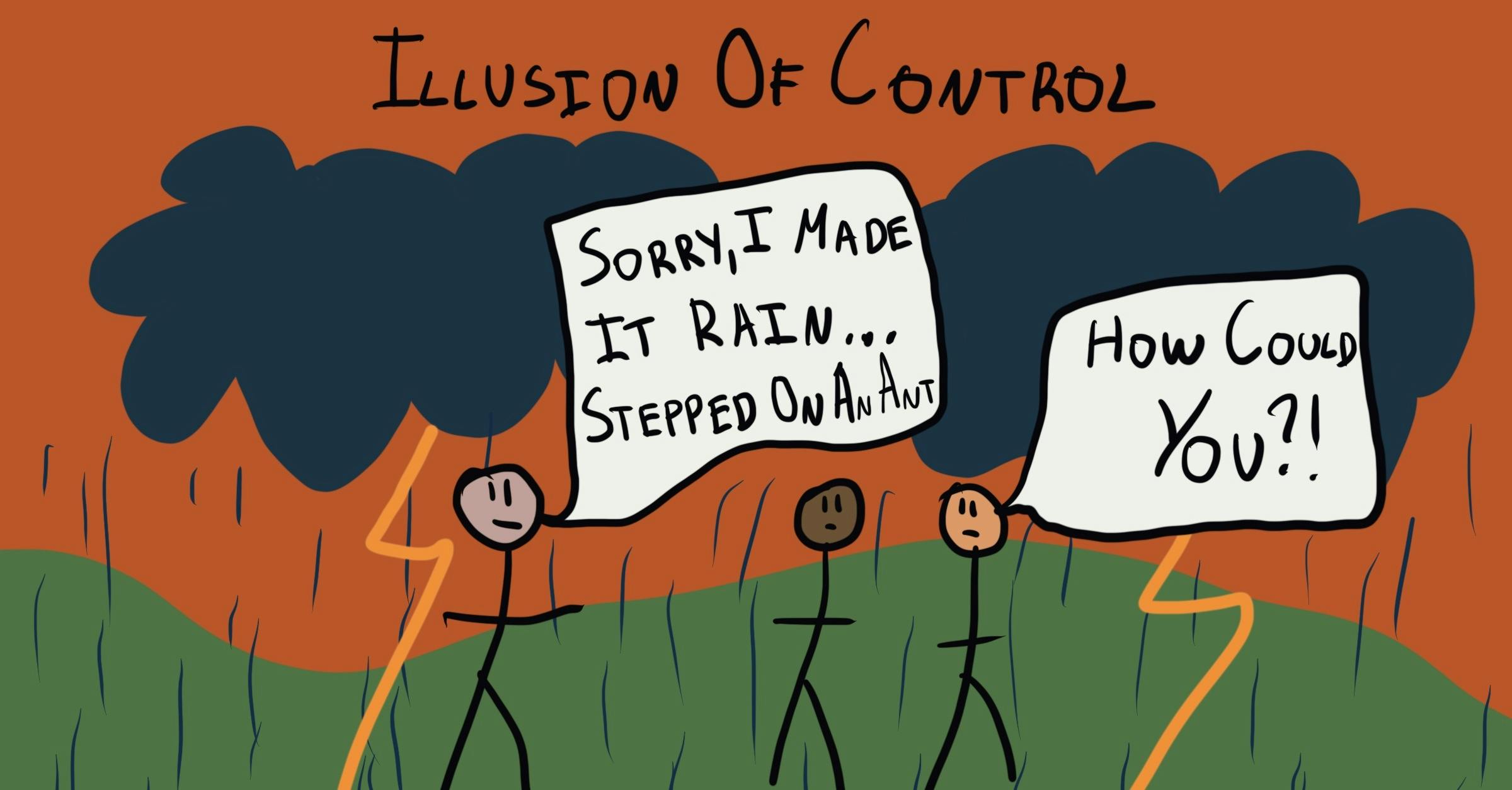Why do we think we have more control over the world than we do?
Illusion of Control
, explained.What is the Illusion of Control?
The illusion of control, also known as illusory control, describes how we believe we have greater control over events than we actually do. Even when something is a matter of random chance, we often feel like we’re able to influence it in some way.

Where it occurs
You and your family are going to watch your favorite soccer team in the league championship match. As always, your dad wears his “lucky” jersey in the team’s colors. It’s a little small on him these days and has been patched up dozens of times, but he insists on wearing it because he believes it will boost the team’s chances of winning.
In his mind, this jersey is essential to the team’s success. He remembers wearing it during a last-minute comeback and again when they won the championship five years ago. This is a classic example of the illusion of control—a bias where people believe they can influence outcomes that are actually random. He vividly recalls the wins while wearing the jersey, but conveniently forgets the times they lost—reinforcing his belief that the jersey plays a role in the team’s success.
The illusion of control shapes everything from superstitions and gambling to financial decisions and sports rituals. Whether it’s an athlete following a strict pre-game routine, a gambler believing they can predict dice rolls, or someone in the check-out line thinking their lucky number will help them win the lottery, the illusion of control may provide a sense of comfort and predictability in an uncertain world. However, as this article explores, the illusion also gives us unrealistic perceptions of control over situations, often with negative effects.
















